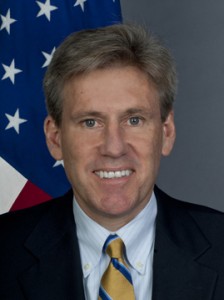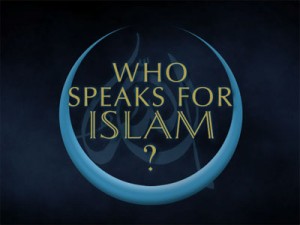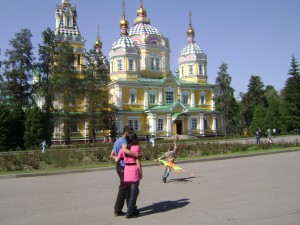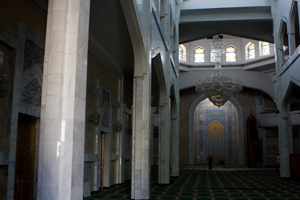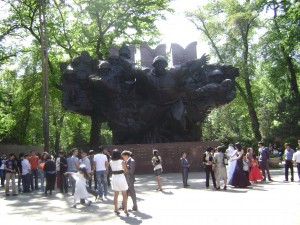How can the murderous ideology of Hamas be extinguished to let peace reign?
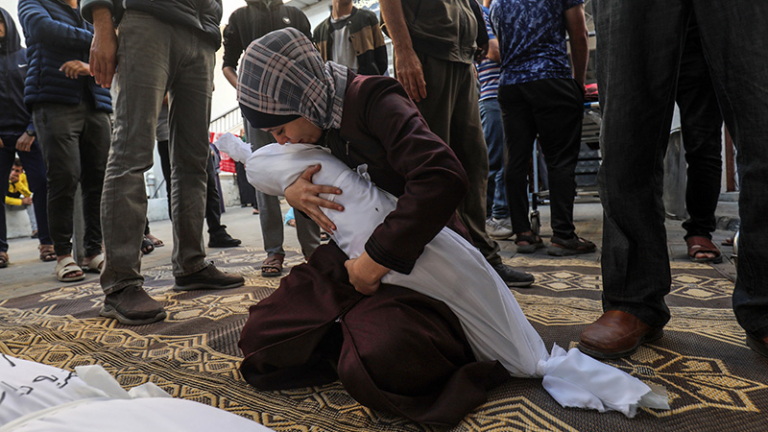
As the Hamas-controlled health authorities count the Palestinian deaths in Gaza, the latest figures total 28,775, an appalling tally that includes an unknown number of terrorists as well as men, women and children who have gotten in the way of Israel’s missiles and bullets. For their part, the Israel Defense Forces say they have killed some 11,000 Hamas members, in addition to 1,000 within Israel on the day this round of death began in the atrocities of October 7th.
Even allowing for wartime exaggeration and laid against the total Gaza population of 2.1 million people, the number of non-combatants killed in the Israel-Hamas War is loathsome. Add in the 1,200 innocent Israelis murdered when Hamas began these horrors – in the largest single terrorist attack since the state was established in 1948 – and the hostages taken by the terrorists, and one gets a sense of the enormous cost of this fight.
Now, as Israel plans to move in a major way on Rafah and some 1.4 million Palestinians try to flee this last bastion of Hamas, the world waits to see how much more bloodshed will occur. While many condemn these plans, the Palestinians cannot turn for help from fellow-Arabs in Egypt, who instead have shunned their embattled brothers and who plan to pen them into a concrete enclosure, should some break through the border. Surely, the behavior of the Egyptians is repugnant.
Of course, all these deaths – along with countless numbers of those wounded – must be blamed on Hamas. Israeli guns are delivering the devastation, but it was Hamas that knowingly and deliberately pulled the trigger with its savagery of early October. The murderous and suicidal group, a spiritual bedfellow of ISIS and other Islamist death cults, seems to take sadomasochistic delight in making victims of its own people and then proclaiming how it’s all Israel’s doing. The hypocrisy of Hamas and it supporters is mind-boggling.
As Israel plans to move forward in what could be a crucial turning point in the war – perhaps one that will lead to Hamas’s extinction as a military force – it’s difficult to remain level-headed and emotionless about it all. Innocents have been killed and more will be, even as Israel permits civilians to move out of harm’s way. How can one not feel for them? How can one not sympathize with widespread calls for a cease-fire, even if that were nothing more than dangerous naivete?
Sadly, as The Wall Street Journal pointed out, the fight must go on. “There’s no defeating Hamas and freeing the hostages without turning to Rafah,” the paper’s editorialists write. “Hamas hasn’t been toppled if it still governs territory. Hamas hasn’t been destroyed if its four Rafah battalions remain intact. Hamas can’t be destroyed while it has access to the Egyptian border and control of the flow of aid at Rafah.” Israel must deliver final crushing blows if it is to render Hamas powerless, especially in the eyes of the Palestinians, who need to be liberated from it both as a source of vile ideas and as a governing force.
I’m reminded of the words of Mosab Hassan Yousef, a son of a founder of Hamas, Hassan Yousef. After engaging in Hamas activities that landed him in an Israeli prison, the younger Yousef repudiated the movement and began to work with the Israelis. He was granted asylum in the United States in 2008, but recently sat down in Tel Aviv for a conversation with a journalist for The Free Press. His take on Hamas is revealing. The group, he says, has created a generation of “people willing to destroy themselves. . . to cause the most destruction possible.”
His language is unsparing about the atrocities of early October. “I was surprised not by Hamas’s brutality, but by the scale of the event,” Yousef says. “There is no human language that can describe the evil that took place on October 7. And that’s not just a war crime. It’s not just killing. It’s a genocide.”
What makes such evil possible, asks The Free Press? The answer lies in the hate-filled beliefs that Yousef’s father helped spread. “Jihadists think that they are the sword of God on Earth,” Yousef says. “That they are actually manifesting the punishment against the Jewish people for being disobedient.”
This perverse ideology is one I saw in would-be recruits to ISIS in Minneapolis. These young Somali Muslim men, whose tales I recount in the book “Divided Loyalties,” yearned for martyrdom in Syria. They saw themselves as noble warriors defending innocent Muslims against various enemies, including the United States, and in their misguided religious zeal and post-adolescent immaturity they saw themselves as earning Paradise for themselves and their families. Like Hamas, they seemed to value death more than life.
In the case of some of the Somalis, it took the deaths of some of their friends and relatives in Syria – deaths that made their post-adolescent fantasies all too real — as well as stiff prison terms of up to 35 years, to change their minds.
The troubling question is, what will it take to destroy the bankrupt ideas that animated Hamas? How can the intellectual toxin of Jew-hatred be eradicated among the Palestinians? How can it be replaced with a longing for peaceful coexistence between two peoples, each with legitimate claims to the land? How can it be succeeded by desires for the sort of tolerance and harmony that some 1.6 million Arabs living within Israel’s borders now have with Jews there?
Some have argued that one should look to the model of World War II with the ways Nazis and the supporters of Japan’s aggression were dealt then. There, it took such monstrous efforts as the firebombing of Dresden and the leveling of Berlin and much of the rest of the country, as well as the horrors of Hiroshima and Nagasaki, to convince aggressors that they had been vanquished. Further, it took the Marshall Plan and long occupations of both Germany and Japan to pacify the people, to bring them into places where they would become the valued citizens of the world they are today. De-Nazification and its equivalent in Japan brought Germans and Japanese into civilization again.
It’s monstrous to think that something akin to that sort of destruction would be needed now in Gaza and in other Arab areas near to Israel. As many as 8.8 million Germans and 3.1 million Japanese died in WWII, and no one could stomach such numbers again, even figures proportionate to the smaller Palestinian population. It’s estimated that some 3 million Palestinians live in the West Bank, with the couple million in Gaza. What will it take to change the minds of those among them who support Hamas and kindred groups? Will 30,000 deaths make a crucial difference? Will that turn Palestinians away from the group that has brought them such devastation, so much suffering?
Even with many thousands of Hamas fighters dead, the U.S. estimates that up to 80% of their ranks remain. Will the capture of Rafah shrink that number dramatically? Will the survivors come to the senses and will they turn on their leaders? Will the battle of Rafah convince those remaining to lay down their arms, as German and Japanese soldiers did after their defeat? Certainly, we cannot expect the self-destructive leaders of Hamas to quit and Israel will likely not settle for anything less than their deaths.
In time, though, installation in Gaza of a government that includes peace-minded Palestinians and other Arabs – along with the rebuilding to come with something like a modern Marshall Plan – will likely be more effective than more bloodshed. As New York Times journalist Thomas Friedman suggests, the participation of Saudi Arabia and the U.S. likely will be essential in this post-war effort. It will also take a change in the leadership in Israel, something that the failure of intelligence in the country on October 7th makes likely anyway.
It’s tough in the middle of a war to see a way out of it. When so many are dying and being maimed, it’s difficult to see through the ugliness. And yet, with the destruction of Hamas and the eradication of its un-Islamic and morally bankrupt ideology, progress will come. Much remains for Israeli and Palestinians alike to do first.



